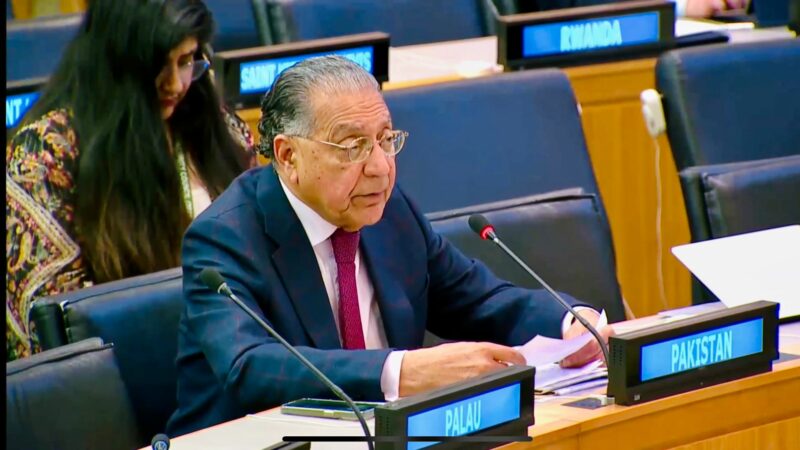Mumtaz Hussain
NEW YORK: Pakistan’s Permanent Representative to the United Nations Ambassador Munir Akram called for international legal framework in cyberspace to to address emerging legal challenges and threats.
Pakistan has said that the applicability of existing international law to cyberspace is not sufficient to address the multifaceted legal challenges arising from ICTs threats.
Making a statement during the Global Roundtable on ICT Security Capacity Building held at the UN headquarters, Ambassador Akram underscored the critical importance of addressing the growing challenges in the realm of Information and Communications Technologies (ICTs).
He stressed the need for developing a legally binding international instrument, specifically tailored to the unique attributes of ICTs, and providing a regulatory framework that creates stability and safety in cyberspace.
The roundtable, convened to address pressing issues related to ICT security, witnessed the inauguration of the Global Points of Contact Directory for ICT Security, a significant milestone aimed at fostering trust and cooperation among states in this vital area.
Ambassador Akram emphasized the urgent need for capacity building in ICT security, highlighting the substantial gap in skills and capabilities among states.
He commended the Open-ended Working Group’s (OEWG) dedication to bridging this gap, particularly emphasizing the importance of equitable international cooperation, essential for ensuring a safe and secure ICT environment for all.
He also outlined key principles for such cooperation, emphasizing demand-driven assistance, equitable access to technologies, and support for critical infrastructure security.
“Pakistan supports the idea of a permanent capacity building mechanism under the UN, as well as a dedicated funding mechanism to support capacity building projects in developing countries,” he maintained.
Addressing the evolving landscape of cyber threats, the ambassador raised concerns over the frequency of cyber-attacks on critical infrastructure and the spread of disinformation. He stressed the need for international collaboration to combat these challenges effectively.
“We are particularly concerned at the frequency of cyber attacks on critical infrastructure. Another aspect of cyber threat is disinformation. My country has been particularly long standing victim of such disinformation.”
The Pakistani envoy expressed hope that the discussions at the Global Roundtable would yield practical recommendations to address the capacity needs of developing countries, marking a significant step towards a safer and more secure digital future for all.


Comments are closed.